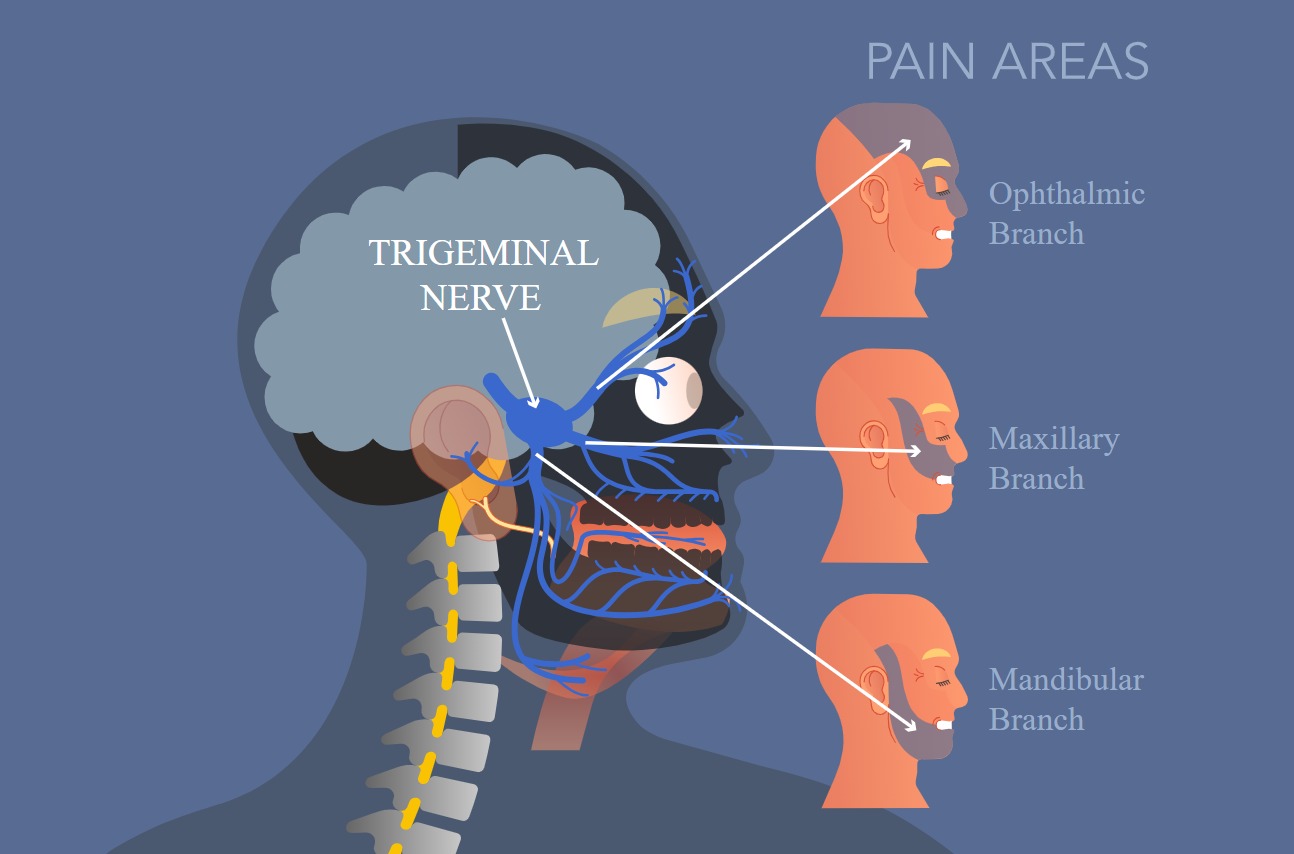Nerve Disorders

Relief from Nerve Pain
Nerve disorders can significantly impact a person’s quality of life, causing debilitating pain and discomfort. At TMJ Sleep Clinic, we specialize in diagnosing and treating a wide range of nerve conditions, including trigeminal neuralgia, atypical facial pain, and other neurological disorders.
Our team of experienced neurologists and pain specialists is dedicated to providing effective relief and improving your overall well-being. We understand the challenges associated with nerve disorders and are committed to offering compassionate and personalized care.
Nerve disorders can cause pain in various parts of the body, depending on the affected nerve. Some common pain areas include face, hands and arms, legs and feet.
If you are experiencing any of these symptoms, it is important to consult a doctor for proper diagnosis and treatment. Early intervention can help prevent further complications and improve your quality of life.
Nerve Disorders Overview
Common Symptoms of Nerve Disorders
Nerve disorders can manifest in various ways, depending on the specific condition and the nerves affected. Some common symptoms may include:
- Pain: Sharp, shooting, or burning pain in the affected area.
- Numbness or tingling: Loss of sensation or a pins-and-needles feeling.
- Weakness: Difficulty moving muscles or performing tasks.
- Muscle wasting: Loss of muscle mass.
- Sensitivity: Increased sensitivity to touch or temperature.
- Changes in reflexes: Decreased or exaggerated reflexes.
If you are experiencing any of these symptoms, it is important to consult with a healthcare professional for proper evaluation and diagnosis.
Common Nerve Disorders
Our team specializes in treating a variety of nerve disorders, including:
- Trigeminal Neuralgia: A condition characterized by sudden, excruciating facial pain.
- Atypical Facial Pain: A chronic pain condition that affects the face.
- Peripheral Neuropathy: Damage to the nerves outside of the brain and spinal cord.
- Brachial Plexus Injury: Damage to the nerves that supply the arm.
- Lumbar Radiculopathy: Pain caused by a pinched nerve in the lower back.
These are just a few examples of the conditions we treat. If you are experiencing nerve pain or other symptoms, we encourage you to schedule a consultation with our team for a comprehensive evaluation.
Effective Treatments for Nerve Disorders
We offer a range of personalized treatment options to address your specific nerve disorder and its underlying causes. Our approach may include:
- Medications: Prescription medications can help manage pain, reduce inflammation, and control symptoms.
- Nerve Blocks: In some cases, nerve blocks may be used to provide temporary relief from pain by blocking pain signals.
- Physical Therapy: Our physical therapists can develop customized exercise programs to improve muscle function, reduce pain, and enhance overall well-being.
- Additional Therapies: Depending on your specific condition, we may also consider other treatments such as acupuncture, biofeedback, or cognitive-behavioral therapy.
Our team will work closely with you to determine the most appropriate treatment plan and monitor your progress throughout your recovery.
FAQ's
Trigeminal neuralgia is characterized by sudden, excruciating facial pain. The pain is often described as sharp, stabbing, or electric shock-like. It typically affects one side of the face and can be triggered by actions such as touching the face, chewing, or brushing teeth.
While trigeminal neuralgia can be a very painful condition, it is generally not a serious health threat. However, the pain can be so severe that it can interfere with daily activities and lead to significant distress.
The time it takes to see results from treatment can vary depending on the individual and the severity of the condition. Some people may experience relief from pain within a few days or weeks of starting treatment, while others may take longer.
The side effects of treatments for trigeminal neuralgia can vary depending on the specific medication or procedure. Some common side effects may include:
- Medications: Dizziness, drowsiness, nausea, constipation, or weight gain.
- Nerve Blocks: Temporary numbness or tingling in the affected area.
- Physical Therapy: Soreness or discomfort during or after therapy sessions.
It is important to discuss any concerns or questions you have about potential side effects with your healthcare provider.
Contact Us for Consultations
We manage chronic orofacial pain and dental sleep disorders like snoring and sleep apnea with a multidisciplinary approach to enhance patient outcomes.

